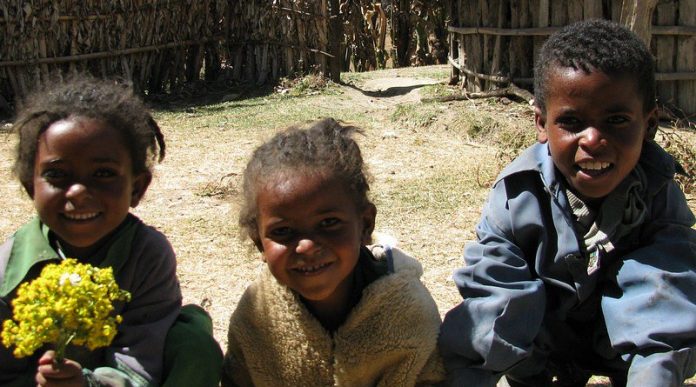The recent fast-moving events in Ethiopia are raising many questions about the future of the country. A violent ethnic war is attracting all types of attention. There are many possible scenarios for Ethiopia’s immediate future, ranging from a negotiation process to a surrender or even a fractious civil war, with the emergence of up to a dozen new micro-states. There is undoubtedly a complex emergency occurring that perhaps needs a different type of attention.
Wrapped in the endless voices from outside Ethiopia, research is showing that ethnic war in the country is accentuated by mono-identities. Ethnic fragmentation and ethnic tensions are resulting from “horizontal inequalities” across the broken system and these are now being acted upon by the belligerents. The political transition of recent years has failed to alleviate these tensions, as repressive state practices, ethnic-based demands and mobilization, and ethnic-based politics continue.
Ethiopia is different from most other nations on the continent because it successfully fought off European colonization. From this perspective, outsiders are poking at the wound of Ethiopia’s feudal system. It is an Ethiopian Orthodox Tewahedo Church country at heart and that national pride feeds into ideas surrounding ethnic patriotism, including what has been described as a fatalistic approach to events. This fatalistic approach permeates the information space, which is a direct result of unhealthy outside interference.
Two cultural concepts stand out within the Ethiopian ethnic cultural space. These ideas are organic in nature and construct cultural norms and rules surrounding “mahiberawi nuro” (collective life) and “yilugnta” (selflessness and public self-consciousness). When mixed with ethnic identity, such ideas become widely uncontrollable and can be influenced.
Now Ethiopian political society is broken. The country’s recent history has turned it into a Somalia, with weapons galore. Its neighbor, Eritrea, is described by locals as “North Korea on the Horn” because of President Isaias Afwerki’s relationship to key ethnic groups on the Ethiopian map. This part of the Horn of Africa is highly sensitive.
Humanitarian aid and interruptions to its flow are a very serious matter. Getting this right means understanding aspects of Ethiopian culture. In terms of family dynamics and structure, Ethiopian culture is a shock in some locales. Here, the concept of collective life comes into play, as an Ethiopian family will rely on immediate family members and the local community, especially neighbors, for emotional and financial support, to be reciprocated in the future. This type of community network is important in terms of survival techniques until an end-game is near.
The other concept, of selflessness and public self-consciousness, is the main driver of the Ethiopian individual, creating unique ideas of belonging and responsibility within ethnic or indigenous groups in terms of their psychological makeup and outlook. Ethiopia’s next chapter depends on international agencies and policymakers capturing this type of essence in their policy outreach.
In general, yilugnta shapes Ethiopian culture in terms of having an emphasis on personal representation or being an ambassador to reflect pride and honor, which is a driver in the Ethiopian battlefields with the use of child soldiers by various sides. For Ethiopia, the temporal aspects of these connections are significant, in that family dynamics can be spread across cities as opposed to a single neighborhood or within the confines of one city. This landscape makes Ethiopia’s rescue more complicated and partly explains why some sides are more successful than others on the battlefield.
For children, the cultural concept of yilugnta sees elders as hospitable, inclusive, community-minded and cooperative, and it reinforces important cultural values. It is in this manner that the phenomenon of child soldiers is telling, in terms of easy recruitment in the northern parts of the country.
Diving deeper, there are various ethnic groups across the country that have their own elaborate system of generation-based customary governance, known as “gada.” Gada and yilugnta together encourage children to be very obedient and respectful toward their parents and elders. When this system breaks down, it is easy to create soldiers out of children. Countering this phenomenon requires specific approaches.
Some would argue we may now be at that point and are wondering how the various ethnic groups would divide Ethiopia into micro-states based on their identity. With so many outside players sticking their fingers into the country’s politics, Ethiopia’s problems only become more compounded. Its ethnic ecosystem is seriously damaged and the repair will be dictated by whoever understands the local characteristics. Such a fractured outcome would be far away from the federalism sought by Prime Minister Abiy Ahmed’s government.
All major international players are focusing on the country’s immediate future because of the human cost and to ensure that it does not fall into separate pieces like some of Ethiopia’s neighbors. New nation states are not a desired outcome, but this chessboard could turn out that way under certain circumstances. Whoever best understands the factors on the ground can relieve the suffering of Ethiopia.
Eurasia Review






























